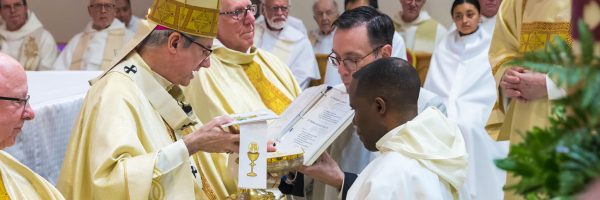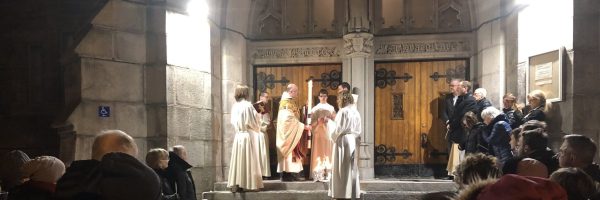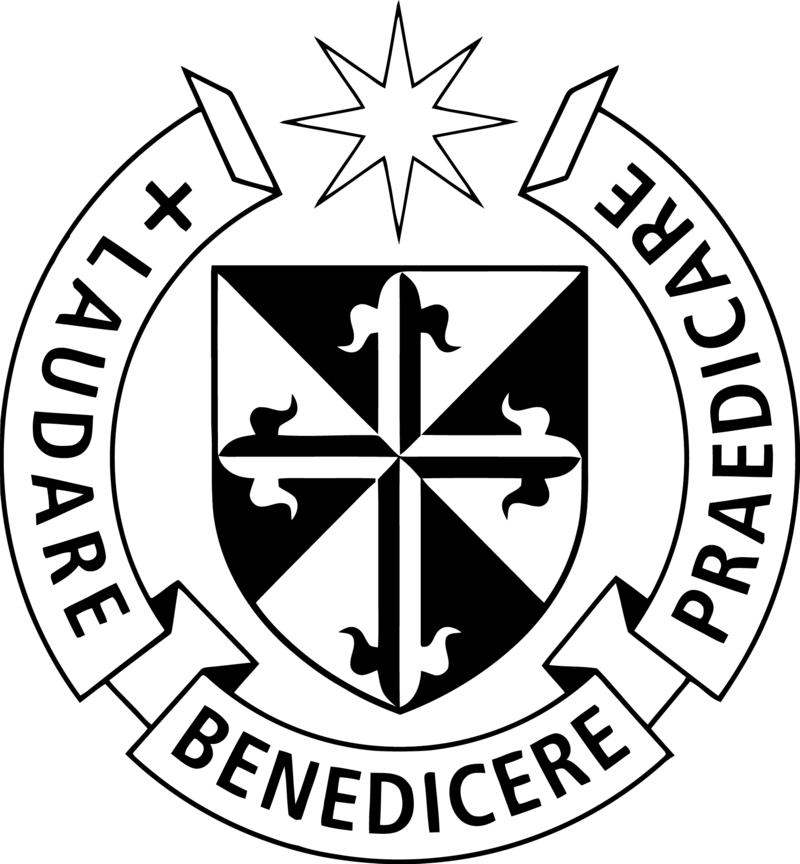Spirituality
Dominican life that takes into account the rich diversity of those who make up the Order today, while at the same time being faithful to Dominic’s original project: a Dominican is a being polarized by the Word, a Word studied, celebrated, lived and proclaimed to others.
The Dominican studies the Word
Saint Dominic didn’t wait for the 21st century to invent the concept of lifelong education.
Dominic, as the Acts of his canonization attest, “often exhorted the brethren of this Order, by word of mouth and by letters, to study the New and Old Testaments without ceasing. He always carried with him the Gospel of St. Matthew and the letters of St. Paul, and studied them so much that he knew them almost by heart.” Dominican study doesn’t resemble the “cramming” of students in the run-up to exams.
His primary aim is not to advance science or to bring about the sweet pleasure of learning something new.
Even with rigorous, scientific methods, the Dominican is above all searching for God.
He approaches the sources of knowledge as a lover reads a letter to his fiancée, committing his heart as ardently as he applies his intelligence.
The Dominican’s quest resembles Mary’s attitude, as she receives God’s interventions, recognizes their value and ponders them in her heart, turning them over and over again until they are fully illuminated.
Study is a contemplative act.

The Dominican celebrates the Word
Liturgy is as important to the Dominican as food is to the body.
By his very nature, the Dominican cannot do without celebrating the Divine Office with his brethren, without becoming anemic and suffering from serious deficiencies.
Isn’t it significant that Dominic at prayer was a favorite subject of artists and chroniclers alike?
Almost nothing is said about the preaching of the Father of Preachers, while much is said about his prayer.
For Dominic, as for his disciples, prayer – especially liturgy – is an act of preaching.
We entrust the Word of God to one another, while at the same time returning it to God.
It’s a sign of the fullness of charity, when love of God and love of neighbor merge in the same activity!
Playing with the Word in this way permeates the spirit, the mind and transforms life.
The liturgical act is a creative action of God in which we collaborate. With God we allow the Word to become flesh again and again, to become our own flesh to the point where it is no longer I who live, but Christ who lives in me(Galatians 2:20).

Dominicans live by the Word
What temerity in that statement.
Our community does not bring together saints, but sinners.
And it’s because we are sinners that we join the Dominican family.
When we make our profession, don’t we ask for God’s mercy and that of our brothers and sisters?
Every day, since its foundation, every convent has been engaged in the work of reconciliation: reconciliation of the individual with himself, with others and with God.
We want to be a sign of the liberating Kingdom, a sign of God’s mercy.
We reinvent, or rather God reinvents, the Word that saves.
Our fraternity seeks to become a living Gospel and a living presence of the Church.

The Dominican preaches the word
We don’t live for ourselves.
Our study aims to enable us to be useful to our neighbor, as the Fundamental Constitution of Order says.
Our prayer makes us contemplate what we will deliver to others.
Our communion enables us to live out what we want to build with the Church and the world.
The salvation of the world is our sole raison d’être.
“What will become of sinners?” cried Saint Dominic.
Our whole life is directed towards others, to bring them the Word that saves.
There are many in the world who live far from the Source, unaware of their thirst, of the meaning of their lives.
It is to all of them that the Dominican wants to go, to offer them the Good News of the Risen Christ.
